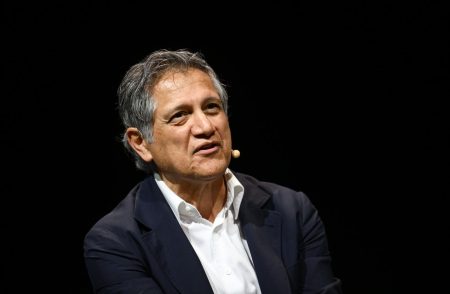Porsche’s latest financial report disappointed investors and analysts wonder whether acceleration can be restored, although nobody expects it to emulate Ferrari’s class-leading profit margins any time soon.
Porsche’s operating profit fell about 20% in the first half of 2024 to €3.06 billion ($3.32 billion) compared with the same period last year. Sales slid about 5% to €19.5 billion ($21.2 billion). Porsche said sales were hit by a slump in China, while electric vehicle sales disappointed. Production was disrupted by flooding at an aluminum supplier.
Porsche is also having to roll back its ambitious plans for electric vehicle sales, after saying its aim for 80% of sales to be all-electric by 2030 won’t be met. It’s not alone. Companies as disparate as Mercedes and Renault are doing the same thing.
Porsche’s operating profit return increased to 17% in the second quarter from 14.2% in the first three months and the company said its mid-term target of between 17 and 19% should be reached next year.
The shares lost about 20% of their value between April and July, then shed a further 8% after the financial report. They closed Thursday in Germany at €69.22, up 0.6% on the day.
Porsche, a VW subsidiary, was listed on the stock market nearly two years ago at €82.50, and according to the Financial Times Lex column, were valued about halfway between premium manufacturers like Mercedes and BMW and supercar maker Ferrari. Since the launch, Porsche share values have slipped down close to the German valuation and away from the Italians.
“Porsche shares have performed poorly since a 2022 listing, and rival Ferrari has left the €64 billion ($69.5 billion) German group in the dust. Competition in China and production snafus continue to hold it back. The risk for CEO Oliver Blume is that the 911’s maker’s valuation drops down closer to that of a normal car company, rather than surging to a Ferrari-style level,” Lex said.
Investment bank HSBC Global Research said Porsche’s results demonstrated its underlying potential, but the company still has “bumps to clear” in the second half.
“We believe the brand has significant potential in terms of improved price and mix, but execution remains a risk,” HSBC Global said in a report.
HSBC Global said the second half of the year will be challenging because of a switch to the new 911, while deliveries of the electric Macan don’t start until late September.
“Beyond 2024, management sees margins back in the 17-19% range in 2025 and still believes 20% is achievable long term. We remain impressed by Porsche’s ability to command and maintain price premiums to its German peers, and despite the challenges, we see no evidence that the products have lost their appeal,” HSBC Research said.
Investment researcher Bernstein pointed out that the shares were down over 40% compared with their post-float peak. Bernstein said in a report entitled “Pressure to perform” it had already cut its profit forecast for 2025 to 16.3%, below Porsche’s updated guidance range of 17 to 19%.
“After a series of own-goals and externally triggered mishaps, the onus is on management to rebuild jaded investor trust. We also have a lot of questions that we feel have not been adequately addressed. We now value Porsche at a 75% discount (previously 70%) to the multiples of Ferrari,” Bernstein said.
The FT’s Lex points out there are other possible hurdles waiting to derail Porsche’s progress.
“A further concern is China. The Middle Kingdom made up some 25% of Porsche sales in 2023, but just 19% so far this year, due to an electric-vehicle price war and brutal competition. That’s unlikely to change soon. The longer-term threat is that Europe’s tariffs on Chinese imports may prompt Beijing to whack duties on carmakers that export vehicles to China, like Porsche,” Lex said.
Read the full article here
















